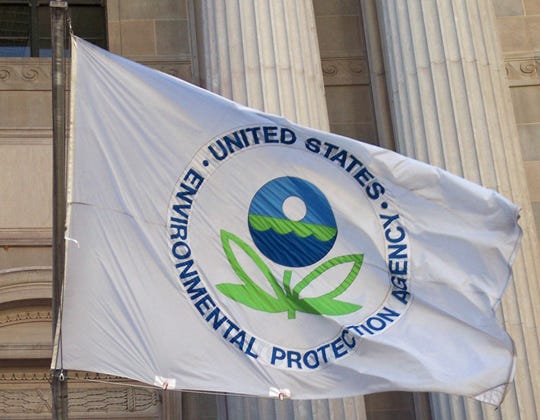EPA Union Incorporates Scientific Integrity into Contract
Should other federal unions do the same?
Last week, EPA employees, represented by the American Federation of Government Employees (AFGE), ratified a new contract incorporating scientific integrity. Local 238 of AFGE represents about half of EPA’s employees, making it the agency’s largest employee union. It is the first time, at least that I know of, that a union has incorporated scientific integrity into a bargaining agreement.
Is this different than the agency’s SI policy?
The new contract's provision on ratified scientific integrity is both different and similar to the agency’s existing scientific integrity policy. It's important to note the unique aspects of the new contract, which set it apart from the agency's policy. However, it's reassuring to see that the new provisions maintain a sense of familiarity with the existing policy, ensuring that employees are protected from multiple policies coordinating with each other. I’ll make a quick note that I assume THIS is the provision on scientific integrity ratified, but it is unclear from local 238’s webpage.
Both policies allow agency scientists to speak freely about their scientific work with the press, at conferences, and with the public. Neither policy allows scientists to opine on agency policies, which is good. Both policies are equal in their strength when it comes to communicating science.
If employees are denied attendance at a scientific conference or event, their supervisor(s) must provide a written denial. This provision is not in the agency’s scientific integrity policy, but I believe it to be a good one. It will create a paper trail if scientists are being denied professional development opportunities - something that happened often under the Trump administration.
According to Government Executive, the ratified scientific integrity provision creates a new appeals process if employees are disciplined for what they feel is retaliation over science-based work. The provision allows for an independent arbiter to step in and investigate the situation. It’s a really good idea that should help to prevent retaliation at times when the agency has been fully captured by anti-science leadership.
Overall, the two policies seem to work well together. It seems clear to me that there was likely some coordination between the union and scientific integrity officials at the EPA. I do believe that the new provisions add some extra strength to scientific integrity, which is great.
Will the policy hold up against an anti-science administration?
As SciLight has previously covered, former Trump administration officials have already started to map out a path to eliminate scientific integrity policies. They were well aware of Local 238’s efforts and have provided a roadmap for Trump, should he win a second term, to remove scientific integrity from the union’s contract. However, it is clear that the hurdle to cut scientific integrity from a union contract is steeper than it would be for agency policies.
If an administration wanted to upend the new scientific integrity provision in the union’s collective bargaining agreement, they are most certainly looking at a lawsuit. To circumvent this legal process, former Trump administration officials have painted a different path, which would require the president to issue an executive order to remove agency discretion over scientific integrity. The administration would then argue that the union’s scientific integrity provision runs contrary to law and is, therefore, unenforceable. I am not a lawyer, so I have no idea how likely these strategies will work. However, it seems like ratifying scientific integrity into a union contract makes it more difficult for an administration to pull scientific integrity over to their court entirely.
The Trump administration previously tried to weaken federal unions but largely failed. Former President Trump signed multiple executive orders that attempted to unilaterally change union contracts, which were struck down in court. The former administration also tried to change the head review process, which was also struck down by the DC Circuit.
Should other federal unions incorporate scientific integrity?
I certainly think that they should, and maybe AFGE Local 238 can be an example of incorporating scientific integrity into a collective bargaining agreement. Until scientific integrity is codified into law, this seems like another way to ensure that federal employees who conduct or utilize science in their work are protected from political interference and assured certain rights as part of the scientific workforce. In conjunction with agency scientific integrity policies, the National Science and Technology Council’s scientific integrity advisory committee, and the Office of Science and Technology Policy’s efforts - scientific integrity is truly becoming stronger across all government.
Local 238’s contract has been sent to the agency head review, which could last 30-60 days. I’m certain that it will be a rewarding day to see this new provision on scientific integrity go into effect. I’m so glad that the EPA continues to serve as a beacon of strong scientific integrity policy and practice, given their important science-based mission. This is a significant step for the union, but also a huge step to ensure that EPA public servants can do the work they are so passionate about - to protect the health and safety of people and our environment.


